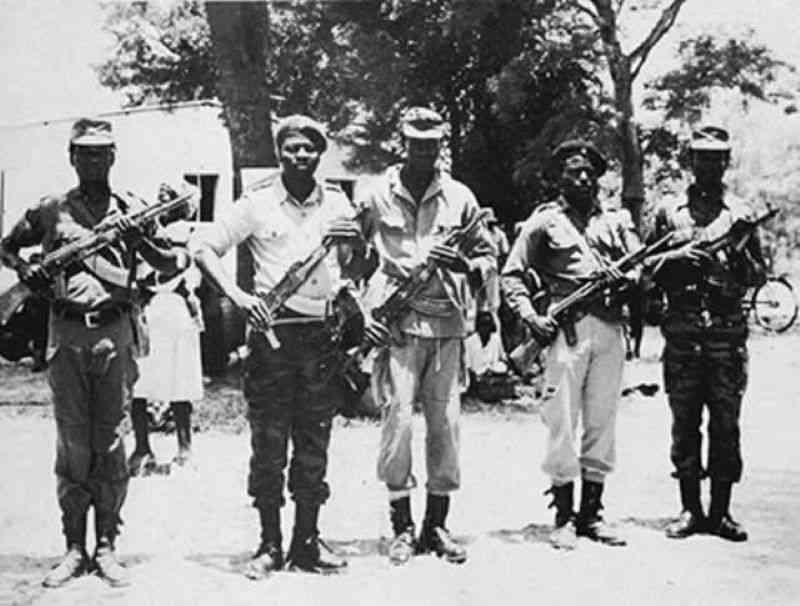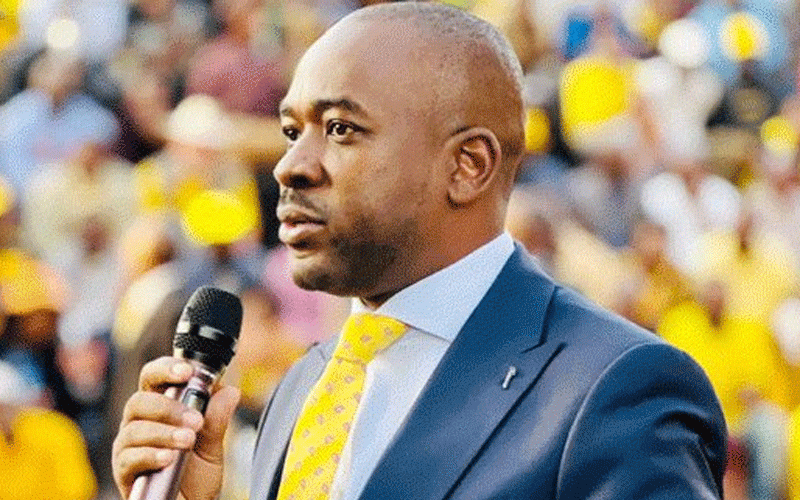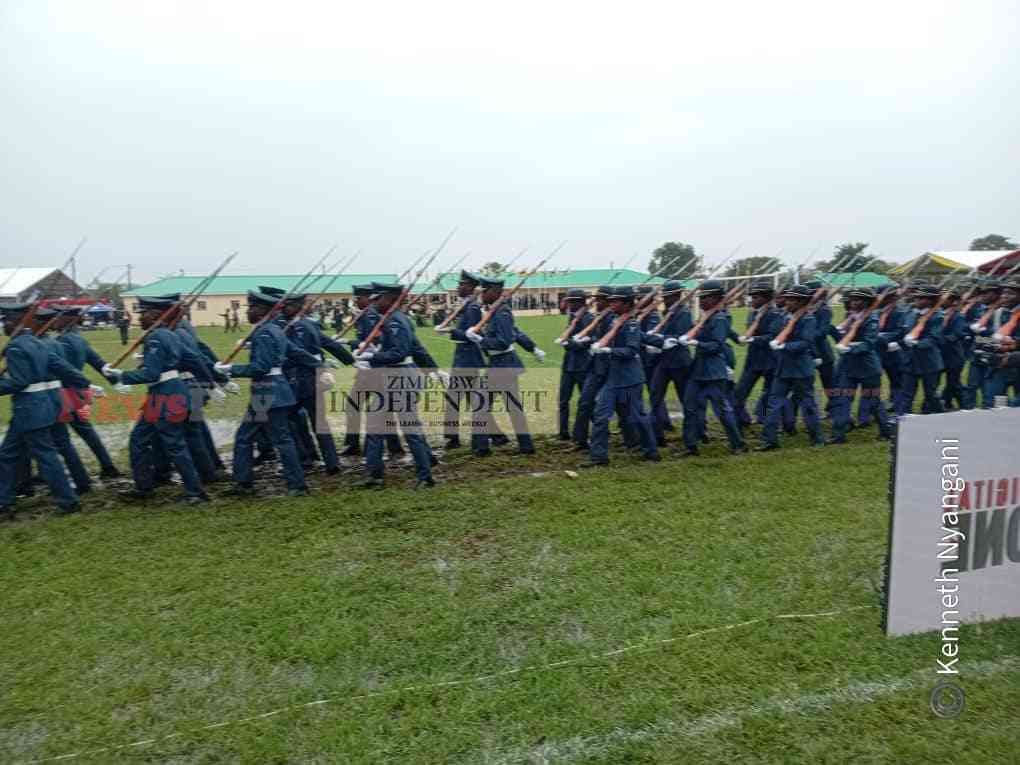
When things become unbelievably smooth on the trot, you just need to do a reality check by tuning into ZTV, for there you will certainly find the dose that will wake you up from your island siesta.
That’s what I did this other day in my search for palliative boredom.
And I ran straight into what is perhaps the biggest song produced during the war of liberation, Kune Nzira Dzemasoja.
This song was composed by a Zanla—Zanu armed wing—freedom fighter called Paul Chigango. His nom de guerre was Comrade Sando Muponda.
He composed the tune in 1974—just when the war against Rhodesian colonial rule was starting to heat up—at the Mgagao Base Camp in Tanzania as a teen soldier of 17 years of age undergoing training there.
Kune Nzira Dzemasoja, which I think must have been adapted into our national anthem at independence in 1980, is a song that was inspired by teachings off Mao Tse Tung’s Red Book comprising military doctrines.
I don’t believe I’m a Maoist or Marxist, but the teachings that inspired Chigango’s song, which went on to be a highlight feature at every Zanla parade, are awesome.
The Kune Nzira piece is a moral composition. It teaches good military conduct in guerilla warfare.
- Corruption Watch: Retracing Zanu PF’s crude path
Keep Reading
But it does more than that. It also teaches good or ethical behaviour in general.
Virtually, the motivational song became the “rule book” for Zanla fighters. Or, rather, it was supposed to.
Don’t forcefully take things from the people, the “masses”; return all that you would seized from the enemy; be kind and polite when you speak to people; pay for everything that you take using acceptable means; don’t engage in fornication and adultery; and don’t torture those that you capture.
Those are the chorused catch-lines in Kune Nzira Dzemasoja.
Of course, that was not the first time I had listened to the song.
In fact, as young boys in late 1979 and early 1980, on the eve of majority rule, we would sneak in, in the evening and enjoy war songs on the rare and croaky wireless radio in dusty Hartley (now Chegutu) when our fathers and elders gathered to listen to ceasefire news.
Over the decades, I have also listened to the song with teary memories of the tender years couched in liberation euphoria.
Strangely, though, I never went deep enough into the lyrics of the song until recently when I bumped into it on ZTV.
That was when I managed to give it context, to use the words in the tune to try and explore one question I have always had this time along.
And that is: Why do Zanu PF leaders—particularly those who were in the war—behave the way they do?
No prize for guessing on the behaviour that I’m talking about.
This crude sense of entitlement among them: we brought independence so we are the real thing and we can do anything we want.
The sexual debauchery, particularly among the male ones. The thievery. Riding roughshod over the people.
The brutal vindictiveness and wanton persecution of perceived enemies. The list, of course, is winding.
When I listened to the Kune Nzira Dzemasoja song the last time recently, I had my eureka moment.
These people have always broken the rules they made, from way back during the armed struggle.
It is now a habit, a very normal thing, to do not only what they are not supposed to do, but to act contrary to the moral principles they would have made themselves.
Taking anecdotes form war time, you will notice that this has always been the case. Let’s start with the first rule—don’t forcefully take things from the people.
You know too well how that rule was broken. When the comrades came to the village, they never asked for people’s chickens, cows or mealie-meal.
They ordered the villagers to cook sadza and meat and ate the food while the fear-struck villagers watched.
That says another thing. They were, in this sense, hardly polite or nice with the people.
They were a very ill-mannered lot that spooked the hell out of the masses. This brutality is generally unsung.
That’s mostly because the victims of this form of robbery were overawed by the comrades who they viewed as mystical beings.
They were also victims of the Maoist/Marxist propaganda that they were fed with at the night vigils, the pungwes.
And this is one gripe I have always had with Maoist/Marxist militarism. Vulnerable masses are used as pawns in a brazen, brutal way.
That is the mentality and attitude that it spawned in the freedom fighters and that has survived to this day.
When the Zanu PF leaders want something, they put the people in the forefront, the firing line.
When they want money, they go to where the people are and even go so far as forcing them out if that’s going to give them access to minerals that they will exploit with Mao’s descendants.
This sense of entitlement abundantly evident in the Zanla fighters is central to understanding their callous impunity to date.
What the people possessed, they possessed in lieu of the fighters who were “making sacrifices” in the processes of unshackling the Africans from colonial rule.
They didn’t have to pay for anything, contrary to Nzira Dzemasoja. They raided black shops and took away the foodstuffs and clothes. And they forced the masses to buy them supplies and clothes too.
That habit has not died. Just about every other day, you hear them talk about how they deserve to rule you because they “died for this country”.
They tell you without flinching that if you are opposed to their rule, you need to be taught properly how to respect them and, by that, learn good behaviour in voting, for instance. It didn’t start in 2000 or 2008.
It was the same thing during the war.
Then to sexual debauchery. In the lower ranks, the freedom fighters used to force themselves on the young girls, the chimbwidos.
They raped them despite the Kune Nzira Dzemasoja line that prohibited engaging in fornication.
This was not just fornication. It was rape. And, today, give me one male Zanu PF leader who is clean on sexual impropriety and I will give you the moon.
The debauchery was not limited to the lower ranks.
I have been talking to female anti-colonial war combatants for a long time.
Their accounts are harrowing. In the camp tents where the bosses couched, horrifying things happened.
The commanders would simply send for this or another young female combatant, rape her and throw her out just like that.
It happened with almost all the young soldiers and those that refused were sent to the battlefront to die.
I know of one commander who impregnated nine teenage fighters and took the tenth as his wife when independence came.
That commander never lost his violent lust for women, until he died a decade or so ago.
Even those, post-independence, you thought were nice commanders and leaders, were serial rapists during the war.
Then to returning things seized from the enemy and others.
There is no iota of evidence that this ever happened. Once they took from the white farmers, shop owners and perceived black “sellouts”, that was it.
Nothing was ever returned.
Today, once you get so unlucky to be called a sellout, they take your farm, business, money and everything. They don’t return the stuff, of course.
It was going to be a nice thing to treat your war prisoners humanely, but that, again, never happened. Instead, once they took you in, they cracked and killed you.
Today, once they label you an enemy, they take you in and throw the keys into the sewerage dam, if you are going to be that lucky.
They remain so unforgiving.
Those that joined Zanu PF from the rival Zapu have fallen into the same pit of immorality but, as it were, its military wing, Zipra, fared better in terms of dealing with the people.










